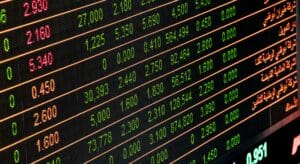The Most Effective Way To Invest In Thailand’s Stock Market 2022.
If you want to invest as an expat or high-net-worth individual, which is what i specialize in, you can email me (advice@adamfayed.com) or use WhatsApp (+44-7393-450-837).
Introduction
Thailand is one of the most visited countries on the planet. In fact, its capital, Bangkok, receives more tourists than any other city on the earth in a normal year.
As a result, Thailand is many people’s first introduction to rising Asia. More building, workers on the move, and economic activity are visible to visitors than they may have seen in their whole lives.
This naturally motivates people to invest in Thailand in order to participate in the boom. Granted, I still believe there are bigger investment opportunities in Asia. However, the country’s allure and accessibility are difficult to dismiss.
Purchasing real estate in Thailand is one option to invest. That path was fully covered in our ultimate guide.
However, you’ve presumably come to discover how to buy stocks in Thailand, so keep reading!
What To Know Before Investing In Thailand Stocks
Thailand is Southeast Asia’s second largest economy and an increasingly industrialised country. It is heavily influenced by the Chinese economy, as are other growing markets in the region. The Thai baht hit a six-year low when the Chinese stock market plummeted on Black Monday in August. In 2015, it was predicted that trade between China and Thailand will exceed $100 billion.
Thailand’s well-organized and controlled stock exchange is increasingly contributing to regional Southeast Asian growth by facilitating access to capital for enterprises and countries including Cambodia, Laos, Myanmar, and Vietnam. Thailand’s recent market reforms and stronger links with China have strengthened fundamentals and boosted long-term interest in Thai stocks.
How To Get Started Investing In Thailand Stocks
Exchange-traded funds (ETFs) and depository receipts are popular ways to invest in Thailand (ADRs). ETFs are stock-like mutual funds that track the performance of a specific index. The iShares MSCI Thailand Capped ETF is SET’s most popular ETF. A minimum lot size of 100 units is required. On SET, there are several dozen ETFs.
Investors can invest in stocks traded on international exchanges via depository receipts. Thailand ADRs are currently over-the-counter equities, with the exception of the Thai Fund (TTF), which trades on the NYSE. Because less information is publicly available and they are more lightly traded, OTC stocks are riskier investments.
The Thai Stock Exchange In Action
Over 600 companies are listed on the Stock Exchange of Thailand (SET), with a market capitalization of around $13 billion Thailand Bhat. The Securities and Exchange Commission regulates the exchange, which was founded in 1975. (SEC). Stocks are bought and sold in lots of 100. SET is an automated trading platform that connects to other exchanges like the NASDAQ.
SET’s Major Indices
The performance of the exchange is tracked by two indexes. The SET50 Index and the SET 100 Index, respectively, represent the top 50 and 100 market capitalization stocks trading on the SET. Every six months, the indices are updated. On both indexes, futures and options are exchanged.
Stock Brokerages In Thailand
In Thailand, roughly ten stockbrokers operate, accounting for about half of all trading volume. According to Fitch Ratings, the brokerage industry is controlled by long-established brokers with strong financial backing. Many Asian and other foreign investors buy in Thailand stocks through online Asian brokers that offer access to the Thai and other Asian stock markets.
When Investing In Thailand Stocks, Keep These Things In Mind
Some opponents have asked for better oversight of Thailand’s fast-growing public corporations as an emerging market. Thailand’s securities market is regulated. It has, nevertheless, gone through some growing pains. The chairman of the securities regulator, the Securities and Exchange Commission, resigned in 2011 due to conflicts of interest including his work as a director of a SET-listed business. The Thai financial system and securities regulation are generally regarded as sound.
When evaluating Thai stocks as potential investments, it’s also important to consider the soundness of the Thai economy and if international investors are net buyers or sellers of Thai stocks. Thai stocks, like those of other Southeast Asian stock exchanges, are influenced by China’s stock market.

Opening A Brokerage Account In Thailand
Buying stocks in Thailand is identical to buying equities anyplace else in the globe. As a result, the first thing you’ll need is a brokerage account.
Instead of utilising a brokerage account in another country, we strongly advise you to open one in Thailand. There are two compelling arguments for this.
To begin with, international brokers rarely allow you to purchase stocks in Thailand. Typically, firms established in the United States or Europe will only allow you to trade on the top dozen or so stock exchanges in the globe. That is not the case in Thailand.
If you can’t get a local account, you’re not completely out of luck. You can trade Thai equities with a few brokers, such as Boom Securities in Hong Kong.
This leads us to the second reason: creating a local account will save you a lot of money in brokerage costs. It applies to buying foreign equities everywhere in the globe, not only Thailand.
International trading is sometimes associated with expensive fees. Using a brokerage based in the country where you’re buying stocks can save you money.
Boom Securities, for example, will charge a minimum of 1,500THB (US$50) each deal. Through a Thai brokerage account, the same commission costs around 60THB ($2).
Large commissions may be acceptable if you make a lot of trades. For many people, round-trip transaction expenses of $100 are a deal-breaker.
Having said that, opening a stock brokerage account in Thailand will almost certainly require a long-term visa.
A 30-day tourist stamp will not suffice. There are a few exceptions, and it all depends on the bank. However, I will not spoil the fun by directing everyone to a public article.
If you already have a long-term visa in Thailand, buying stocks is much easier. Simply travel to Bangkok Bank’s Silom Road headquarters and open a Bualuang Securities account. They’ll guide you through the entire procedure.
There are two primary choices for non-residents. To begin, you might accept higher brokerage fees by establishing an account outside of Thailand. Second, rather than a separate brokerage account, you can buy mutual funds in Thailand using a regular bank account.
With a tourist visa, a few Thai institutions will allow foreigners to create a bank account. To buy specific stocks and ETFs, you must first open a real trading account, which needs long-term residency.
If you prefer managed funds or aren’t a Thai resident, Bangkok Bank also has Thailand’s largest mutual fund and ETF portfolio. It appears that whether or not you can open a bank account as a tourist is determined by the branch and the workers.
Aberdeen Asset Management is the manager of some of Thailand’s most successful funds. Unfortunately, non-resident foreigners are not permitted to open accounts under their present policy.
Kasikornbank and SCB are also viable banking options. As a foreigner, the former is often easier to create an account with than the latter.
Thailand’s Economic Overview
Thailand’s economy is Southeast Asia’s second largest (after Indonesia), yet its per capita income ranks fourth in the area, after Singapore, Brunei, and Malaysia. Prior to the COVID-19 pandemic, GDP growth had settled at roughly 4% to 5% per year on a long-term average, owing to a robust automotive industry and the country’s role as a major supplier of rice and agricultural commodities.
The pandemic disrupted supply chains and significantly reduced trade, tourism, and domestic consumption. Unemployment rose sharply, and GDP shrank by 6.1 percent in 2020. Since then, however, growth has surpassed expectations, with the World Bank forecasting that growth will return to pre-pandemic levels of roughly 5% by 2022.
Since the military coup in 2014, the country’s political leadership has been under siege. The country’s administration expects to get past these challenges and restore the economy now that a new constitution is in place, however Western sources are cautious. The military government’s current programme, “Thailand 4.0,” aims to lift the country out of its middle-income rut and transform it into a high-income country.
Using ETFs to invest in Thailand
ETFs, or exchange-traded funds, are the simplest way to invest in Thailand since they provide rapid diversification in a US-traded product. The iShares MSCI Thailand ETF (NYSE: THD) is the most popular way for US investors to obtain exposure to the Thai economy, with over $400 million in total net assets as of March 2021.
The fund invests in over 120 different securities, with a focus on energy and financials, and its three largest holdings account for nearly 40% of its portfolio. The ETF is less expensive than many actively managed mutual funds, with an expense ratio of 0.59 percent.
Before adding a fund to a portfolio, investors should consider its equity beta, concentration risks, and other considerations. International ETFs that focus on emerging economies have historically had higher beta coefficients than domestic ETFs, implying that they are potentially riskier for investors.
Investing in Thailand’s ADRs and Stocks
ADRs, or American depository receipts, are U.S.-traded securities that reflect overseas stocks such as those in Thailand, and are a good option for investors looking for more direct exposure. While not as diversified as ETFs, they provide a mechanism for investors to buy particular equities in order to profit from more specific possibilities.
ADRs popular in Thailand include:
Commercial Bank of Siam (SMUUY)
PCL Advanced Info Service (AVIFY)
Bank of Bangkok (BKKLY)
Investors should be aware that ADRs may have less liquidity on overseas markets than their domestically traded counterparts. While many UK and European ADRs have a large volume, emerging market ADRs, such as Thailand’s ADRs, may have a far higher liquidity risk. Investors may also need to diversify their ADR portfolio for well-rounded exposure, which can be difficult when working with emerging market firms.
Thailand’s Investment Risks
Thailand’s economy faces several geopolitical concerns that investors should think about before putting money into the country. The economy of the country may confront its own dangers relating to inflation and monetary policy. Any of these threats, if not contained, might destabilise the country and cause serious issues.
Consider the following geopolitical risks:
Thailand is vulnerable to the negative consequences of US-China trade disputes, including lower export demand and disrupted supply chains.
Thailand has a lengthy history of military coups, with 20 constitutions and charters since 1932. However, monarchical rule has increasingly faced internal threats, particularly from younger demonstrators.
Weak inflation, which hovered around 1% before and during the pandemic, is still a problem. Drops in public and private investment, as well as significant family debt, are among the factors.
Before making any investment choice, investors should carefully consider these risks against the benefits of investing in Thailand. In general, Thailand ETFs or ADRs should be included as part of a diversified portfolio to optimise risk-adjusted gains over time.
Pained by financial indecision? Want to invest with Adam?

Adam is an internationally recognised author on financial matters with over 830million answer views on Quora, a widely sold book on Amazon, and a contributor on Forbes.



